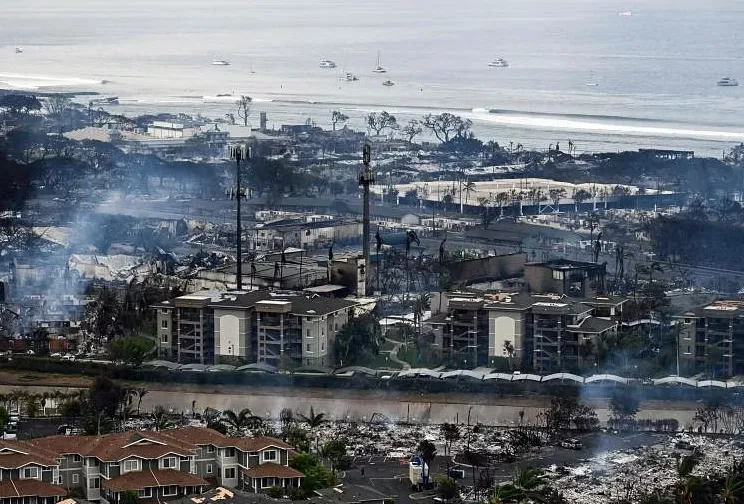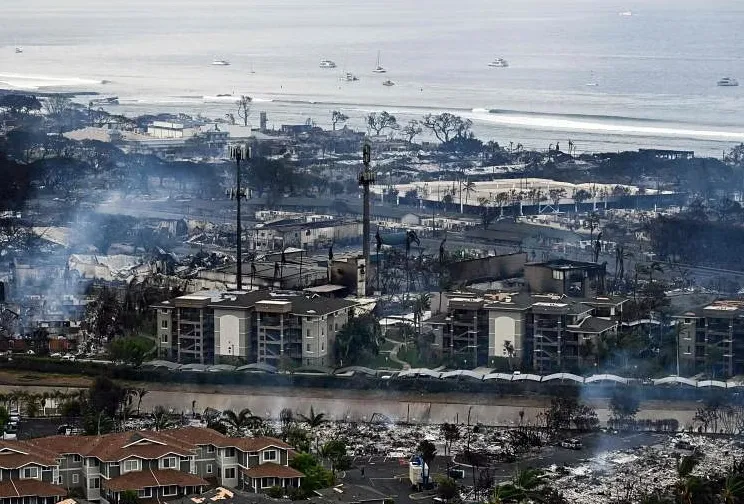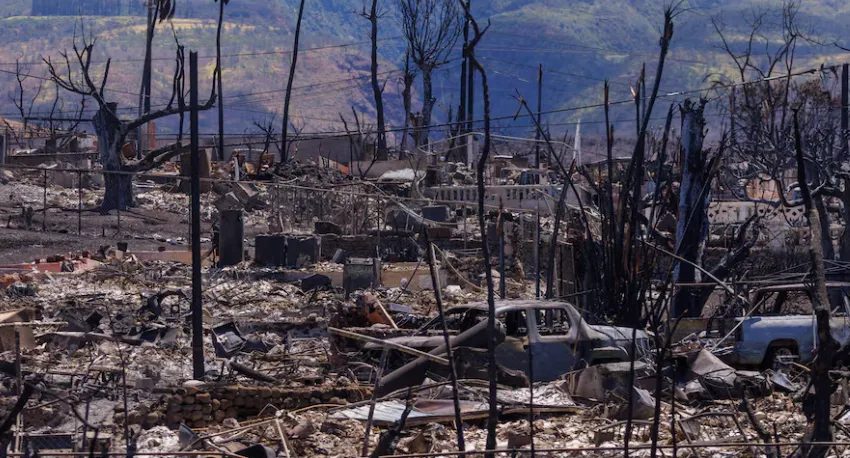Growing Financial Hardship and Uncertainty Grip Maui Residents Post-Lahaina Fire

Growing Financial Hardship and Uncertainty Grip Maui Residents Post-Lahaina Fire

A new report paints a troubling picture of the economic and emotional toll on Maui residents following the devastating Lahaina fire. According to the Maui Together Wildfire Assessment, nearly half of the island’s residents have experienced a significant decline in their financial situation since the disaster, and many are grappling with the possibility of leaving the state.
Rising Financial Struggles and Food Insecurity
The report highlights a sharp increase in financial hardship among Maui residents, particularly those directly impacted by the Lahaina fire. More than two-thirds of fire survivors have reported difficulties affording groceries over the past year, and roughly half have had to reduce medical care due to financial constraints.
Lisa Grove, lead researcher of the assessment, emphasized the severity of the situation, stating, “We don’t use the word ‘poverty’ very often to talk about the situations in Maui County, but it is becoming increasingly relevant.” The study, which involved over 3,000 participants across various Hawaiian islands, underscores the deepening financial crisis faced by many.
Uncertainty and Displacement
The emotional and psychological impact of the fire is profound. The assessment reveals that nearly 45% of fire survivors are seriously considering leaving the state due to their precarious financial situation. Housing instability is a major concern, with many survivors reporting multiple relocations since the fire.
Residents describe their current circumstances using terms such as “stressful,” “uncertain,” and “struggling.” The report indicates that fire survivors, who are often younger, less educated, and more likely to have children, face higher rates of unemployment and underemployment compared to the general population.

Widespread Impact with Unequal Effects
The report reveals that 72% of Maui residents have been affected by the fires, either directly or indirectly. However, those who experienced direct impacts face more severe financial, mental, and physical hardships. The crisis is not limited to fire survivors; it affects the broader community, with many expressing concern about their future in Hawaii.
The Threat of Exodus
A significant concern highlighted by the report is the potential for an exodus from Maui. Although precise data on migration patterns post-fire is lacking, the survey indicates that many residents have already left or are contemplating leaving. This includes 81% of fire survivors and 65% of the general population, who have seen friends and family depart since the disaster.
Grove notes that while Hawaii’s unique cultural and social bonds often retain residents, the mounting difficulties could reach a tipping point. “We can only go so far with those intangibles when people are barely surviving,” she said.
Moving Forward
The Maui Together Wildfire Assessment underscores the urgent need for comprehensive support and intervention to address the ongoing financial and emotional challenges faced by Maui residents. As the island continues to recover, understanding and addressing these issues will be crucial in supporting the community’s resilience and rebuilding efforts.
This report, published by the Hawaii State Rural Health Association, offers critical insights into the current state of Maui’s recovery and the significant challenges that lie ahead for its residents.



